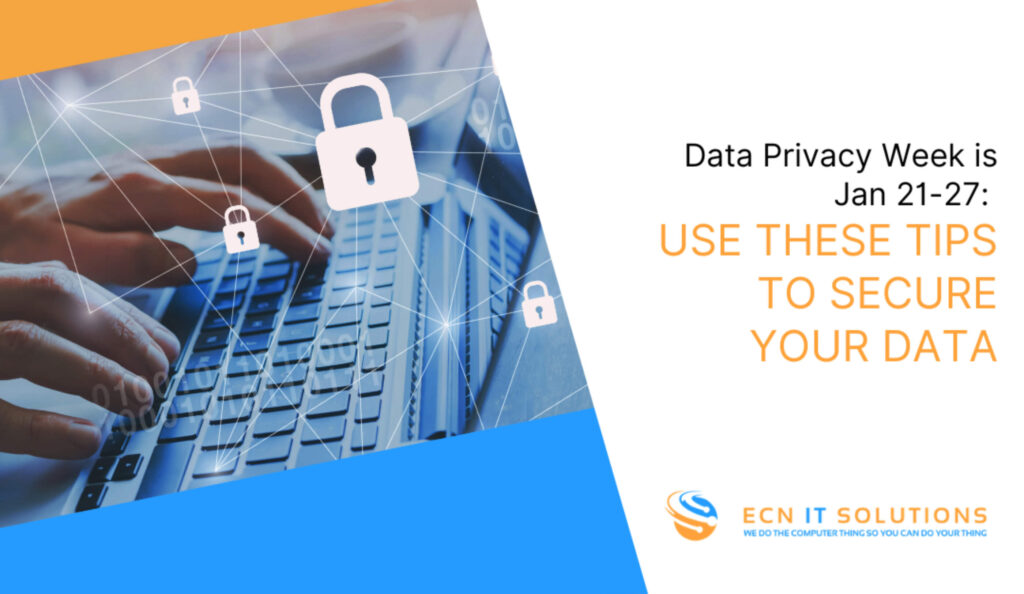In an era defined by digital transformation and unprecedented connectivity, the sanctity of personal and sensitive data has become paramount. As we gear up for Data Privacy Week from January 21 to 27, it becomes imperative to not only acknowledge the significance of data privacy but also to empower ourselves with the knowledge and tools necessary to protect our digital footprint.
This comprehensive guide will navigate through the intricate landscape of data privacy, offering an in-depth exploration of its evolution, contemporary challenges, and actionable tips to fortify the security of our valuable information.
Understanding the Significance of Data Privacy
The Historical Context
To truly grasp the importance of data privacy, it’s crucial to rewind the clock and examine the historical context. In the early days of the internet, privacy concerns were relatively minimal, and individuals shared information without much hesitation. However, as the digital landscape matured and the scope of data collection expanded, so did the need for safeguarding personal information.
The Contemporary Landscape
Fast forward to the present day, where we find ourselves in a world dominated by data-driven technologies. From social media platforms and online shopping to smart home devices and cloud services, every digital interaction contributes to the vast pool of data. With this, the potential threats to privacy have also multiplied, ranging from cyberattacks and identity theft to unauthorized data sharing.
Assessing the Risks: Common Threats to Data Privacy
In our interconnected world, understanding the various threats to data privacy is the first step towards effective protection.
Cyberattacks and Hacking
Cyberattacks remain a persistent menace, with hackers employing increasingly sophisticated techniques to breach security measures. Ransomware attacks, phishing schemes, and malware are just a few examples of the tools malicious actors use to compromise sensitive data.
Unauthorized Data Collection
Companies often collect more data than necessary, leading to concerns about unauthorized surveillance. Personalized advertisements, location tracking, and data profiling are instances where user information is harvested without explicit consent.
Inadequate Security Measures
Insufficient cybersecurity measures within organizations can leave them vulnerable to data breaches. Weak passwords, lack of encryption, and outdated software are common weak links that hackers exploit.
Third-Party Data Sharing
With the prevalence of data-sharing agreements between companies, users’ information may be passed on to third parties without their knowledge. This raises questions about who has access to our data and how it is being used.
Strategies to Enhance Data Privacy
Empowering Individuals
Protecting data privacy begins at the individual level. Here are some proactive measures everyone can take:
- Use Strong Passwords: Create complex passwords using a combination of letters, numbers, and symbols. Change passwords regularly and avoid using the same password across multiple accounts.
- Enable Two-Factor Authentication (2FA): Adding an extra layer of security with 2FA significantly reduces the risk of unauthorized access.
- Regularly Update Software: Keep your operating system, antivirus software, and applications up to date to patch vulnerabilities and enhance security.
- Review Privacy Settings: Periodically review and adjust privacy settings on social media platforms and other online accounts to control the amount of personal information visible to others.
Strengthening Organizational Practices
For businesses and institutions, robust data privacy practices are essential to instill trust and protect customer information.
- Implement Robust Cybersecurity Protocols: Invest in state-of-the-art cybersecurity solutions, conduct regular security audits, and provide employee training to recognize and mitigate potential threats.
- Data Minimization: Only collect and retain the data necessary for business operations. Avoid unnecessary data storage, reducing the potential impact of a breach.
- Transparent Data Policies: Clearly communicate how user data is collected, processed, and shared. Obtain explicit consent and give users the option to opt out of data collection.
- Regular Compliance Audits: Stay abreast of data protection regulations and conduct regular compliance audits to ensure adherence to legal requirements.
Advocacy for Stronger Legislation
Governments and regulatory bodies play a pivotal role in shaping the landscape of data privacy. Advocating for and implementing comprehensive legislation can provide a framework for safeguarding individuals and businesses alike.
- Global Data Protection Standards: Encourage the development and adoption of global data protection standards to ensure a consistent and comprehensive approach to data privacy.
- Stricter Penalties for Violations: Enforce stricter penalties for organizations that fail to uphold data protection standards, creating a deterrent against negligence.
- Consumer Education Initiatives: Invest in educational programs to raise awareness among individuals about their rights, the importance of data privacy, and how to protect themselves.
The Role of Technology in Data Privacy
Emerging Technologies
As technology continues to evolve, new tools and methodologies emerge to enhance data privacy.
- Blockchain Technology: Known for its decentralized and secure nature, blockchain can be employed to create transparent and tamper-proof systems for data storage and transactions.
- Privacy-Preserving Technologies: Innovations like homomorphic encryption and federated learning allow data to be utilized without exposing the raw information, striking a balance between utility and privacy.
- Artificial Intelligence for Security: AI-powered solutions can identify and respond to potential security threats in real-time, bolstering cybersecurity measures.
Navigating the Future of Data Privacy
Evolving Threat Landscape
As technology advances, so do the tactics of those seeking to exploit vulnerabilities. Staying ahead of emerging threats requires continuous adaptation and innovation.
Collaboration and Information Sharing
In the interconnected digital ecosystem, collaboration is key. Sharing information about emerging threats and effective cybersecurity practices among businesses, industries, and nations can create a collective defense against cyber threats.
Empowering a Secure Future
Data Privacy Week serves as a reminder that the responsibility to safeguard our digital lives rests on both individuals and organizations. By understanding the evolving landscape, recognizing common threats, and adopting proactive measures, we can collectively create a more secure online environment.
As we navigate the complexities of data privacy, ECN IT Solutions remains committed to empowering individuals and organizations with cutting-edge cybersecurity solutions. Together, let’s build a future where our digital interactions are not only seamless but also secure.
Contact us to explore how we can collaborate in fortifying your data security strategies.

